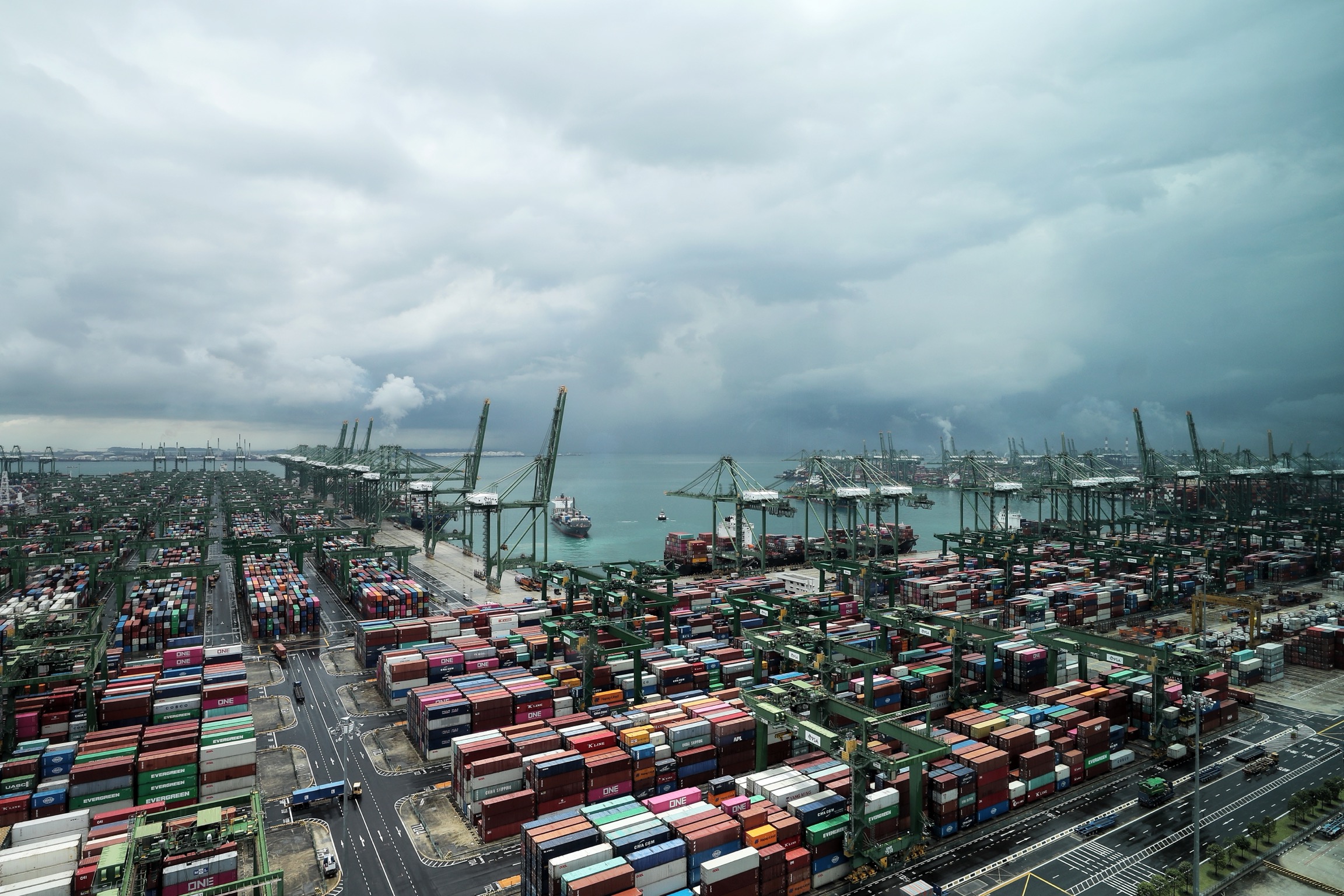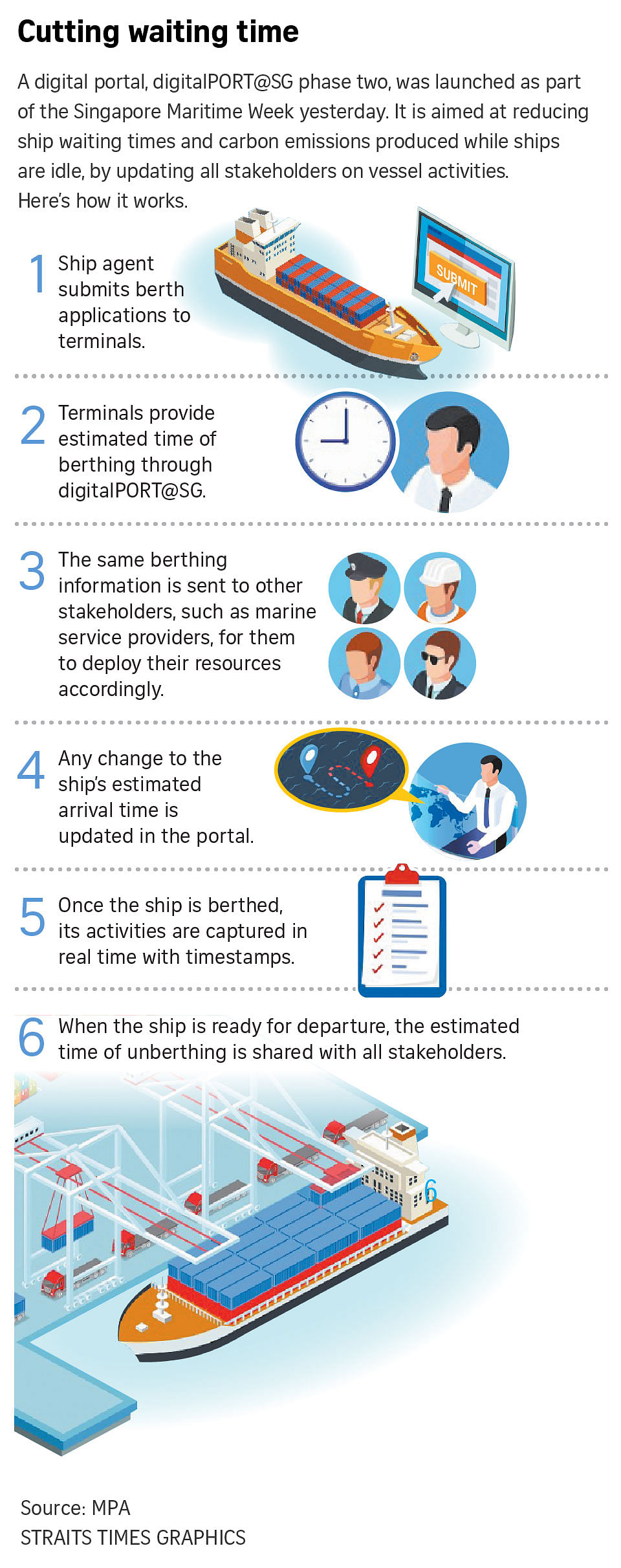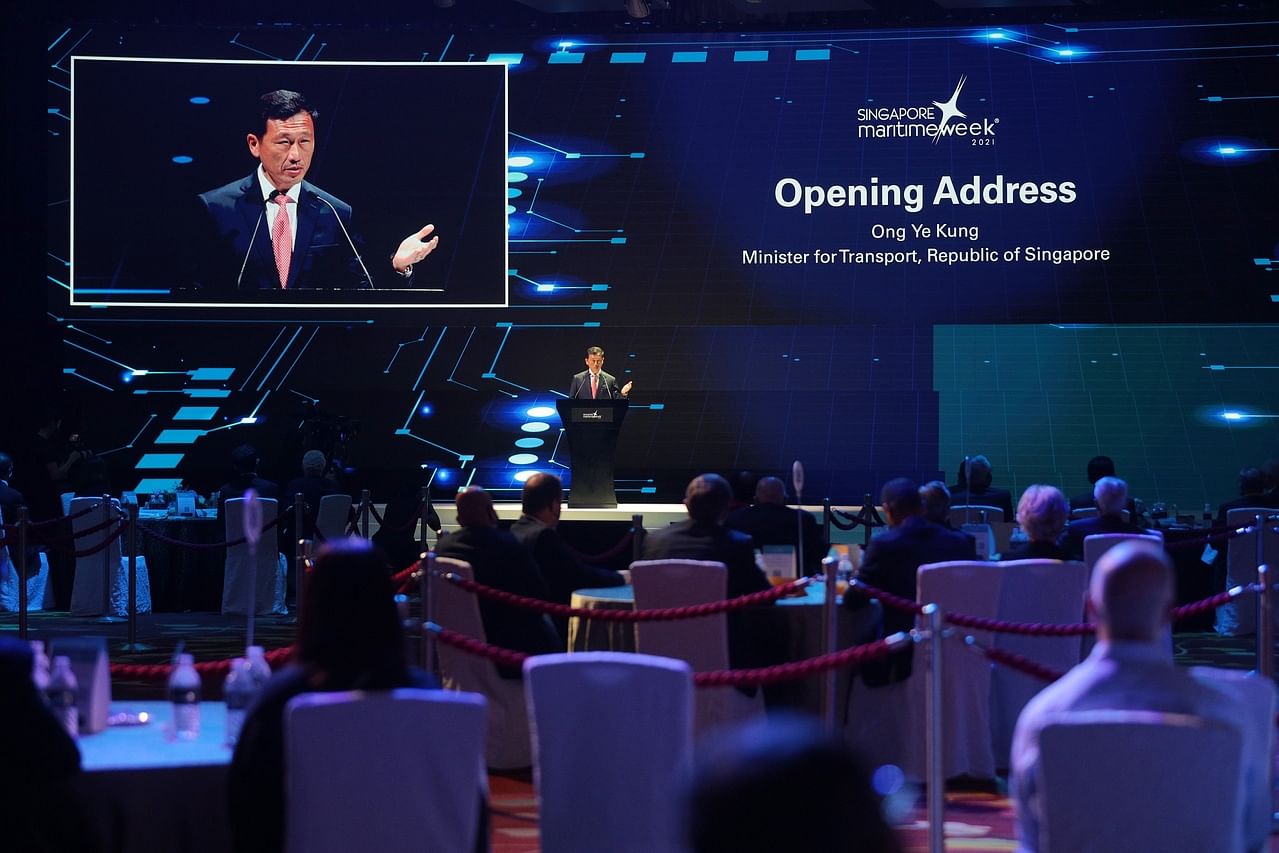Global centre focused on reducing shipping emissions to be set up in Singapore
Sign up now: Get ST's newsletters delivered to your inbox

More details on the global decarbonisation centre will be released later this week.
ST PHOTO: GAVIN FOO
SINGAPORE - A global centre where those in the maritime industry can coordinate, research and make reducing shipping emissions a reality will be set up in Singapore, as part of recommendations by an international body to make shipping more environmentally friendly.
More details on the global decarbonisation centre will be released later this week by the Maritime and Port Authority of Singapore (MPA). The Straits Times understands there are two possible sites for the project, at either the 5.2ha former Pasir Panjang Power Station or the 1.55ha Marina South field.
Both locations are currently listed as reserve sites and a tender has been put up for architects to assess their suitability.
The announcement was made by Transport Minister Ong Ye Kung in his speech at the opening ceremony of the 15th Singapore Maritime Week that will run till Friday (April 23).
Other recommendations by the International Advisory Panel on Maritime Decarbonisation, set up by the Singapore Maritime Foundation last year with MPA's support, will also be made public in a report as part of the week's events.
The week-long conference focuses on the themes of decarbonisation, digitalisation and talent attraction, and is expected to have an international audience of 6,000 people, with most tuning in online.
It comes at a time when both Covid-19 and the Suez Canal blockage last month have disrupted the industry. These two crises have emphasised just how important it is to keep major sea arteries open, a task that will require the collective effort of all stakeholder countries, Mr Ong said in his opening speech.
Singapore, on its part, will continue to enhance its systems to detect collision and grounding risks early, fight piracy and ensure smooth crew changes in the Straits of Malacca and Singapore. But getting all seafarers, no matter their nationality, vaccinated against Covid-19 is also vital to the resilience of global supply lines.
"The Suez Canal carries around 12 per cent of all global seaborne trade. In comparison, the Straits of Malacca and Singapore carries almost three times as much. Any disruption along the straits would be of greater impact," he said.
He added: "The International Maritime Organisation (IMO) is working with international unions and shipping associations to secure vaccines for a network of seaports that can assist in the vaccination of international sea crew. This is an important effort to strengthen maritime resilience, and Singapore will do our best to support."
At the event, Mr Ong launched a digital system, digitalPORT @ SG Phase 2, which will cut berthing times for ships docked here by speeding up support and scheduling services. This will cut operating costs for businesses while reducing pollutive air emitted near Singapore, as ships emit about 45 tonnes of carbon dioxide each day they spend idle.
Phase one of the digital portal, which began in 2019, focused on consolidating the 16 different forms for port, vessel and immigration clearances into one. This has already saved the industry about 100,000 hours worth of labour per year.

Port terminal operator PSA also already uses an artificial intelligence engine that optimises the movements of containers coming through Singapore's port, a transhipment hub with highly complex vessel and container movements.
In line with decarbonisation efforts, Mr Ong said that Singapore would support an international, non-discriminatory levy on marine fuel consumption to be introduced, with proceeds to go into research and development for cleaner fuels and maritime decarbonisation efforts.
Before zero-carbon fuels such as ammonia and hydrogen can be used - a prospect that is still "quite some distance away" - Singapore will also support the use of liquefied natural gas as a transitional fuel by supplying this to ships that use them at its ports.
All these efforts, which will make the industry more sustainable, will require attracting more young talent.

ST20210419_202153527749/cyopen/Clement/Jason Quah Minister Ong Ye Kung speaks at the Singapore Maritime Week 2021 opening ceremony, at the Marina Bay Sands Expo and Convention Centre on April 19, 2021. // Singapore Maritime Week 2021 Opening Ceremony to be launched by OYK
PHOTO: ST
"My sense is that the maritime sector has been less successful in attracting our young. It is ironic, given that we are an island, surrounded by the ocean. The sea is a fascinatingly complex and large ecosystem, bursting with life and diversity, waiting for curious minds to explore," Mr Ong said.
"My suggestion is to be less focused on selling the young specific professions and roles in the sector. Instead, get our young to love the sea."
He added that a common love for the sea can also drive international collaboration.
"We need to be committed to (international collaboration), and be driven by our love for the sea and the idea that the oceans are our most important global commons, which hold the common heritage of mankind and connect rather than separate the peoples of different lands."
Correction note: This story has been edited for clarity.


